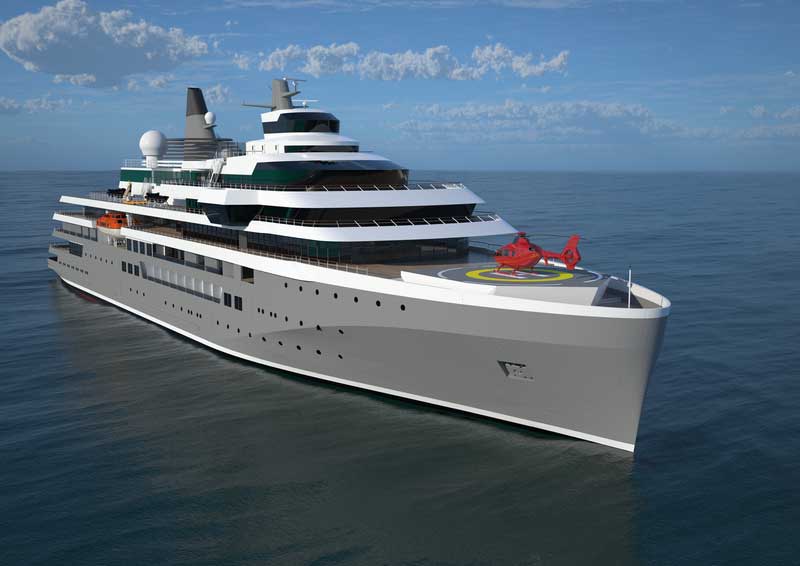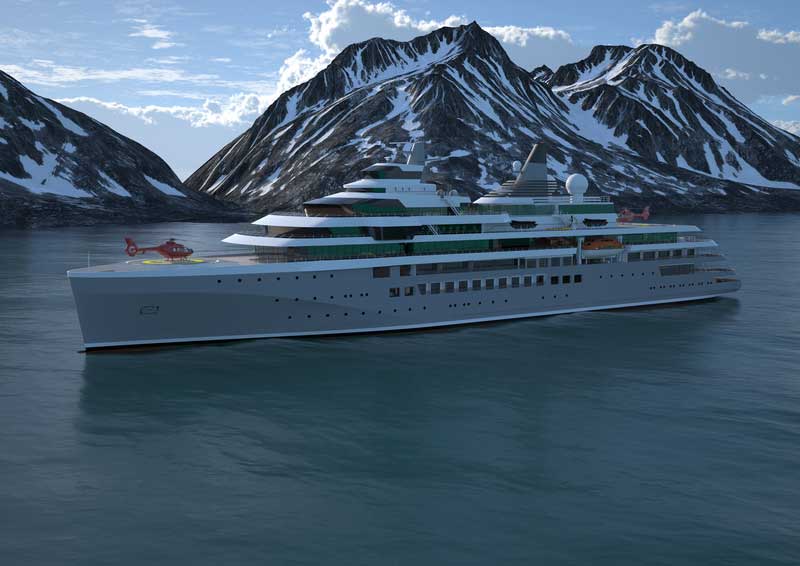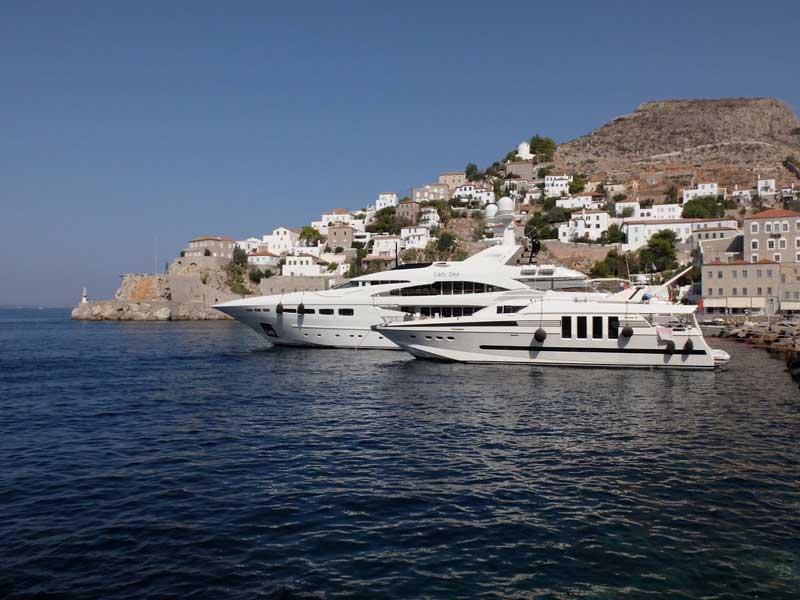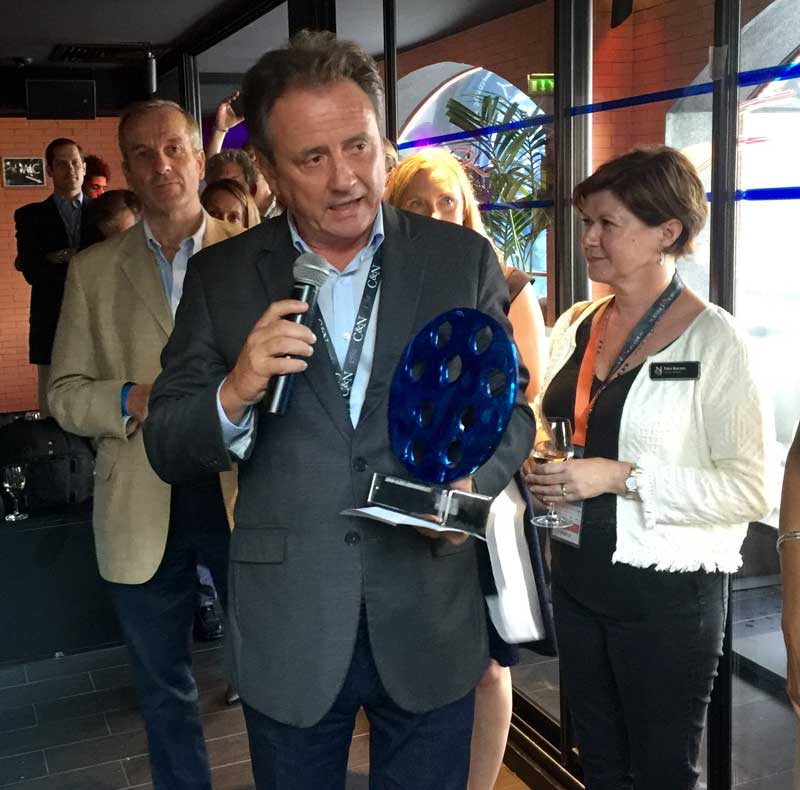Damen Shipyards Group unveiled its recently finished Expedition Cruise Vessel design. The result of a partnership unique in the industry, the vessel benefits from unparalleled collective experience.
With Damen taking the lead, the design also draws on the skills and expertise of two additional parties: Expedition Voyage Consultants Ltd and the Danish Naval Architect firm, Knud E. Hansen.
From the outset of this project, Damen has collaborated with Expedition Voyage Consultants; an established and trusted name in the expedition cruise business known for their innovative approach to expedition management. Their wealth of practical expedition experience (with their team having led well over 500 expeditions) was instrumental in creating a fit-for-purpose vessel with safe and efficient operations embedded into its design.
Knud E. Hansen, the project’s second partner, also contributed significantly. Damen Product Director Henk Grunstra says, “Bringing Knud E. Hansen onto the project team allowed us to benefit from their vast collective expertise in designing passenger ships- including the first ever expedition cruise ship. By combining Knud E Hansen’s portfolio including designs for more than 700 cruise vessels and the 6,000-plus ships that Damen has built over the years, you have quite a team at your disposal.”
Global capabilities
The Damen Expedition Cruise Vessel has been designed for expedition operations in both remote polar and tropical regions. “The vessel’s Polar Class 6 compliance and 30 days autonomous cruising capability ensure she is globally capable and able to tackle challenging, far-reaching itineraries,” highlights Mr Grunstra. “Furthermore, the vessel’s design is prepared to comply with SOLAS’ Safe Return to Port requirements.”
Because the capabilities of an expedition ship directly impact the quality of experience its passengers have, Damen concentrated not just on the onboard comforts but also the onboard logistics. This was furthered with the significant practical input from Expedition Voyage Consultants. “Passengers will be able to see that this vessel was not only designed for the expedition industry, but also by the expedition industry.”
From the crow’s nest
A core philosophy of the design was to connect its passengers to the pristine environments in which the vessel will sail. Whether sailing adjacent to remote Pacific atolls or sliding past towering Antarctic icebergs, passengers will take in the views on multiple viewing platforms that extend over the side or past the bow, providing the most spectacular vantage point of any expedition ship. Perched on the ship’s mast, a specially developed crow’s nest will aide visibility during ice navigation as well as give passengers a panoramic view over the surrounding landscape.
With approximately 1,100m2 of public space and 2,500m2 of outside deck, there will be sufficient space for 115 passengers and a +200 pax design will be developed soon.

Delivering efficiency
For the propulsion system, Damen has selected a diesel-mechanical hybrid configuration. More specifically, this will encompass IMO Tier III compliant (EPA tier 4 equivalent) medium speed engines. A PTI-PTO variable frequency drive will also be included, thus enabling efficient load distribution on the engines.
Designed to be ‘battery ready’, the vessel could be equipped with an energy storage battery system capable of various functions such as peak- shaving, provision of supplementary power for manoeuvring or silent sailing operations and auxiliary generator UPS.
“This hybrid propulsion technology is the most fuel efficient option available,” says Mr Grunstra referring to the vessel’s 16 knot service speed and 18 knot maximum speed. “In combination with the hull design and the effective use of electricity on board, we are expecting to reach fuel consumption and CO2 reductions of at least 20 percent.”






